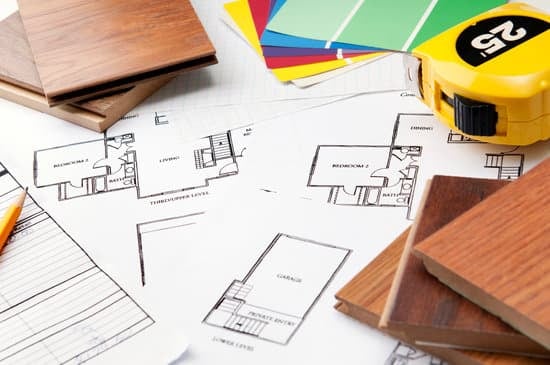Are you looking for ways on how to improve home heating efficiency? Understanding the concept of home heating efficiency is essential in maximizing the comfort of your living space while minimizing energy costs. In this article, we will delve into the importance of improving home heating efficiency and explore various strategies to achieve this goal.
Efficient home heating is not only vital for keeping your house warm during colder months but also for reducing energy consumption and lowering utility bills. By understanding the principles of home heating efficiency, you can make informed decisions on upgrading your heating system, implementing proper insulation, and utilizing energy-efficient techniques.
Assessing the performance of your current heating system is the first step towards improving its efficiency. Whether you have a furnace or boiler, understanding its energy consumption and output can help identify areas for improvement. Upgrading to a high-efficiency heating system, implementing proper insulation and sealing, using smart thermostats for better control, performing regular maintenance, and incorporating renewable energy sources are just a few strategies that can significantly enhance home heating efficiency.
Improving home heating efficiency is not only beneficial for reducing energy costs but also contributes to environmental sustainability. By following the tips and strategies outlined in this article, you can create a comfortable and energy-efficient living environment for your household.
Importance of Improving Home Heating Efficiency
Improving home heating efficiency is not only beneficial for the environment but also for your wallet. Heating accounts for a significant portion of household energy consumption, and inefficient heating systems can lead to unnecessary energy waste and high utility bills. By understanding the importance of improving home heating efficiency, homeowners can take steps to reduce their energy usage and environmental impact.
One of the key reasons to prioritize home heating efficiency is the potential cost savings. Upgrading to a high-efficiency heating system or implementing energy-efficient techniques can lead to lower energy bills, especially during the winter months when heating usage is at its peak. Additionally, proper insulation and sealing can prevent heat loss, further reducing the need for constant heating and resulting in additional cost savings.
Another important factor to consider is the environmental impact of inefficient home heating. High energy consumption not only drives up utility costs but also contributes to increased greenhouse gas emissions. By improving home heating efficiency, homeowners can reduce their carbon footprint and contribute to overall energy conservation efforts.
In addition to financial and environmental benefits, improving home heating efficiency can also enhance overall comfort and indoor air quality. A well-maintained and efficient heating system can provide more consistent warmth throughout the home while also helping to mitigate issues such as drafts and cold spots. This not only creates a more comfortable living environment but also promotes better respiratory health by minimizing air pollutants that can be associated with inefficient heating systems.
| Benefit | Description |
|---|---|
| Cost Savings | Upgrading to high-efficiency systems or implementing energy-efficient techniques leads to lower energy bills. |
| Environmental Impact | Reducing carbon footprint through decreased energy consumption. |
| Comfort & Air Quality | Enhancing overall comfort by maintaining consistent warmth throughout the home. |
Assessing Current Heating System Performance
Before making any changes to your home heating system, it’s important to assess its current performance. This involves taking a closer look at your existing heating system and determining its efficiency.
One way to do this is by checking your energy bills and comparing them to previous months or years. If you notice a significant increase in energy usage without a corresponding change in your heating habits, it could be a sign that your heating system is not operating efficiently.
Another way to assess your current heating system performance is by conducting an energy audit. This can be done by a professional who will evaluate the efficiency of your heating equipment, as well as the insulation and sealing of your home. By identifying areas of heat loss or inefficiency, you can make targeted improvements to enhance the overall performance of your heating system.
Additionally, consider the age and condition of your heating system. Older systems tend to be less efficient compared to newer models, and they may require more frequent repairs and maintenance. If your heating system is more than 15 years old, it may be time to consider upgrading to a high-efficiency model for better performance and energy savings.
| Aspect | Consideration |
|---|---|
| Energy Bills | Compare current energy usage with past months or years. |
| Energy Audit | Hire a professional to evaluate heating equipment, insulation, and sealing. |
| Age and Condition | Determine if the system is due for an upgrade based on age and performance. |
Upgrading to a High-Efficiency Heating System
When it comes to improving home heating efficiency, one of the most impactful steps you can take is upgrading to a high-efficiency heating system. High-efficiency heating systems are designed to provide maximum heat output while using less energy compared to traditional systems, resulting in lower utility bills and reduced environmental impact.
Benefits of High-Efficiency Heating Systems
High-efficiency heating systems offer numerous benefits, including cost savings, improved comfort, and reduced carbon emissions. By using advanced technology to maximize heat transfer and minimize energy waste, these systems provide consistent warmth throughout the home without causing significant spikes in energy consumption. Additionally, many high-efficiency heating systems come with enhanced features such as variable-speed motors and programmable thermostats, which further contribute to energy savings and personalized comfort.
Factors to Consider Before Upgrading
Before upgrading to a high-efficiency heating system, homeowners should consider several factors. These include the size of the home, existing ductwork, insulation levels, and regional climate conditions. Consulting with a professional HVAC technician can help determine the appropriate size and type of high-efficiency system that will best meet the specific needs of the home. Additionally, homeowners should research available rebates or incentives for installing high-efficiency equipment offered by local or state government agencies or utility companies.
Implementing Proper Insulation and Sealing
A crucial aspect of improving home heating efficiency is proper insulation and sealing. This step is important because a well-insulated home can significantly reduce the loss of heat, allowing the heating system to work more effectively. Start by assessing the current insulation in your home.
Check for gaps, cracks, and areas where air may be leaking out. Common problem areas include windows, doors, attics, and basements. By properly insulating and sealing these areas, you can prevent heat from escaping and cold air from entering your home.
One effective method of insulation is using weatherstripping or caulking to seal any gaps around windows and doors. Additionally, consider adding insulation to your attic and basement if they are not already insulated. This can help reduce heat loss through the roof and foundation of your home.
Another option is to upgrade to energy-efficient windows that are designed to better retain heat. By addressing these areas, you can create a more airtight environment within your home, resulting in improved heating efficiency.
Proper insulation and sealing not only improve heating efficiency but also contribute to overall energy savings. By reducing the workload on your heating system, you can lower your energy consumption and ultimately save on utility bills. Additionally, a well-insulated home provides better comfort for occupants by maintaining consistent temperatures throughout living spaces. With these benefits in mind, it’s evident that implementing proper insulation and sealing is essential for maximizing home heating efficiency.
Using Smart Thermostats for Better Control
One of the most effective ways to improve home heating efficiency is by using smart thermostats for better control of your heating system. Smart thermostats offer a range of features and benefits that can help you save energy and reduce heating costs.
Programmable Settings
Smart thermostats allow you to set up specific heating schedules based on your daily routines. You can program the thermostat to lower the temperature when you are away from home or asleep, and raise it when you are returning or waking up. This level of control helps to ensure that your heating system is not running unnecessarily, leading to significant energy savings.
Remote Access and Monitoring
Another advantage of smart thermostats is the ability to control them remotely through a smartphone app. This feature allows you to adjust the temperature in your home from anywhere, ensuring that you only heat your home when necessary. Additionally, some smart thermostats provide energy-usage reports and reminders for maintenance, helping you stay informed about your heating system’s performance.
Adaptive Learning Technology
Many smart thermostats also come equipped with adaptive learning technology that analyzes your heating preferences and adjusts settings automatically to optimize energy efficiency. Over time, the thermostat learns your behaviors and makes personalized adjustments, ultimately leading to greater energy savings without sacrificing comfort.
By using smart thermostats for better control, homeowners can significantly improve their heating efficiency and reduce energy costs while maintaining a comfortable living environment. The convenience and advanced features offered by smart thermostats make them an essential tool for optimizing home heating systems.
Regular Maintenance and Service of Heating System
Regular maintenance and servicing of your heating system is crucial in ensuring its efficiency and longevity. By taking the time to properly maintain your heating system, you can prevent potential problems, reduce energy consumption, and prolong the lifespan of your equipment.
Here are a few key tasks that should be included in regular maintenance and service of a heating system:
- Schedule annual professional inspection: It is important to have a qualified technician inspect your heating system at least once a year. They can identify any potential issues, clean components, check for leaks, and ensure everything is running efficiently.
- Replace air filters: Dirty air filters can restrict airflow and reduce the efficiency of your heating system. Make sure to replace or clean air filters regularly to keep the system running smoothly.
- Check for leaks: Inspect your heating system for any air leaks or gaps in ductwork. Sealing these leaks can improve energy efficiency by preventing heat loss.
- Lubricate moving parts: Proper lubrication of moving parts in your heating system can reduce friction, which in turn reduces energy consumption.
By making regular maintenance and service a priority for your heating system, you can save money on energy costs and avoid costly repairs in the future. It’s an investment that pays off in the long run.
Utilizing Energy-Efficient Heating Techniques
When it comes to improving home heating efficiency, utilizing energy-efficient heating techniques can make a significant difference in reducing energy consumption and costs. There are various strategies and methods that homeowners can employ to ensure that their heating systems operate at maximum efficiency while minimizing environmental impact.
One of the most effective energy-efficient heating techniques is using zone heating, which involves heating specific areas of the home as needed instead of maintaining a consistent temperature throughout the entire house. This can be achieved through the installation of ductless mini-split systems or programmable thermostats, allowing homeowners to adjust the temperature in different zones based on their usage patterns. By only heating occupied areas, zone heating helps to reduce energy wastage and lower utility bills.
Another energy-efficient heating technique is radiant floor heating, which distributes heat evenly across the floor surface, providing a comfortable and efficient way to warm up living spaces. This method eliminates the need for hot air circulation, resulting in reduced heat loss and improved indoor air quality. Radiant floor heating can be installed using electric resistance cables or water-based tubes embedded in the floor, offering an energy-efficient alternative to traditional forced-air heating systems.
Additionally, incorporating passive solar heating techniques can maximize natural sunlight to heat homes during colder months. This can include utilizing south-facing windows for solar gain, thermal mass materials like concrete or tile floors to absorb and retain heat, and strategic landscaping to provide shading in summer while allowing sunlight in winter.
By harnessing solar energy for passive heating, homeowners can reduce reliance on mechanical HVAC systems and decrease their overall energy consumption. Overall, by implementing these energy-efficient heating techniques, homeowners can significantly improve their home’s thermal comfort while reducing their carbon footprint.
Incorporating Renewable Energy Sources for Heating
When it comes to improving home heating efficiency, one option to consider is incorporating renewable energy sources for heating. By utilizing renewable energy, homeowners can reduce their reliance on traditional systems that rely on finite resources and contribute to environmental pollution. Here are several renewable energy sources to consider for home heating:
- Solar Heating: Installing solar panels or solar thermal systems can harness the sun’s energy to provide heat for a home. This can be achieved through passive solar design, active solar heating, or a combination of both.
- Geothermal Heating: This method utilizes heat from the earth’s core to provide efficient and sustainable heating for a home. A geothermal heat pump system can extract heat from beneath the ground during the winter months and transfer it into the home.
- Biomass Heating: Biomass heating systems use organic materials such as wood pellets, agricultural residues, or other biofuels to generate heat. These systems can be used in the form of stoves or boilers to provide warmth while reducing carbon emissions.
By incorporating renewable energy sources for heating, homeowners can not only reduce their environmental impact but also potentially lower their energy bills in the long run. It is essential to carefully assess the feasibility and cost-effectiveness of each option before making a decision. Additionally, taking advantage of any incentives or rebates offered by local government or utility companies can make the transition to renewable energy more financially viable.
Conclusion
In conclusion, improving home heating efficiency can bring a multitude of benefits to homeowners. By understanding the importance of heating efficiency and taking steps to upgrade systems, implement proper insulation, and utilize energy-efficient techniques, homeowners can save money on their heating bills while also reducing their environmental impact.
Upgrading to a high-efficiency heating system not only provides better temperature control and comfort but also reduces energy consumption, leading to lower utility bills. Implementing proper insulation and sealing helps retain heat within the home, reducing the amount of energy needed to maintain a comfortable indoor temperature. Furthermore, using smart thermostats allows for better control over heating systems, optimizing usage and further reducing energy waste.
Regular maintenance and service of heating systems are essential for ensuring optimal performance and longevity. By keeping up with maintenance tasks such as filter replacements and inspections, homeowners can avoid costly repairs in the long run while also improving the overall efficiency of their heating systems. Additionally, incorporating renewable energy sources for heating, such as solar or geothermal energy, can further reduce reliance on traditional fossil fuels and decrease carbon emissions.
Incorporating these strategies for improving home heating efficiency not only benefits homeowners financially by reducing energy costs but also contributes to a healthier planet by decreasing overall energy consumption and environmental impact. It is clear that making these changes is not only beneficial for individual households but also for the global community as we work towards creating more sustainable living practices.
Frequently Asked Questions
How Can I Make My Home Heating More Efficient?
Making your home heating more efficient can be achieved through various methods. One way is to ensure that your home is well insulated, as this will reduce heat loss and make it easier to maintain a comfortable temperature.
Another important step is to have regular maintenance and cleaning of your heating system, such as checking for leaks in ducts and servicing your furnace or boiler. Additionally, using a programmable thermostat can help you manage the temperature more effectively and save energy by reducing heating when you’re not at home or asleep.
What Is the Best Way to Heat a House Efficiently?
The best way to heat a house efficiently involves a combination of strategies. First, improving insulation and sealing any drafts will go a long way in retaining heat within your home. Next, using energy-efficient heating systems like heat pumps or high-efficiency furnaces can significantly reduce energy consumption.
It’s also important to properly size your heating system for your home to avoid wasting energy. Lastly, integrating smart technology like smart thermostats can enhance the efficiency of how you control and manage your heating.
How Can We Increase the Efficiency of Heating?
Increasing the efficiency of heating requires attention to both the equipment being used and the overall operation of the system. Regular maintenance of the heating system is crucial, such as cleaning or replacing air filters, checking for leaks in ducts, and ensuring proper airflow.
Upgrading to more energy-efficient appliances and improving insulation can also contribute to higher efficiency levels. Additionally, considering alternative sources of energy like solar panels or geothermal systems can further increase the efficiency of heating while reducing environmental impact.

I’m thrilled to have you here as a part of the Remodeling Top community. This is where my journey as an architect and remodeling enthusiast intersects with your passion for transforming houses into dream homes.





